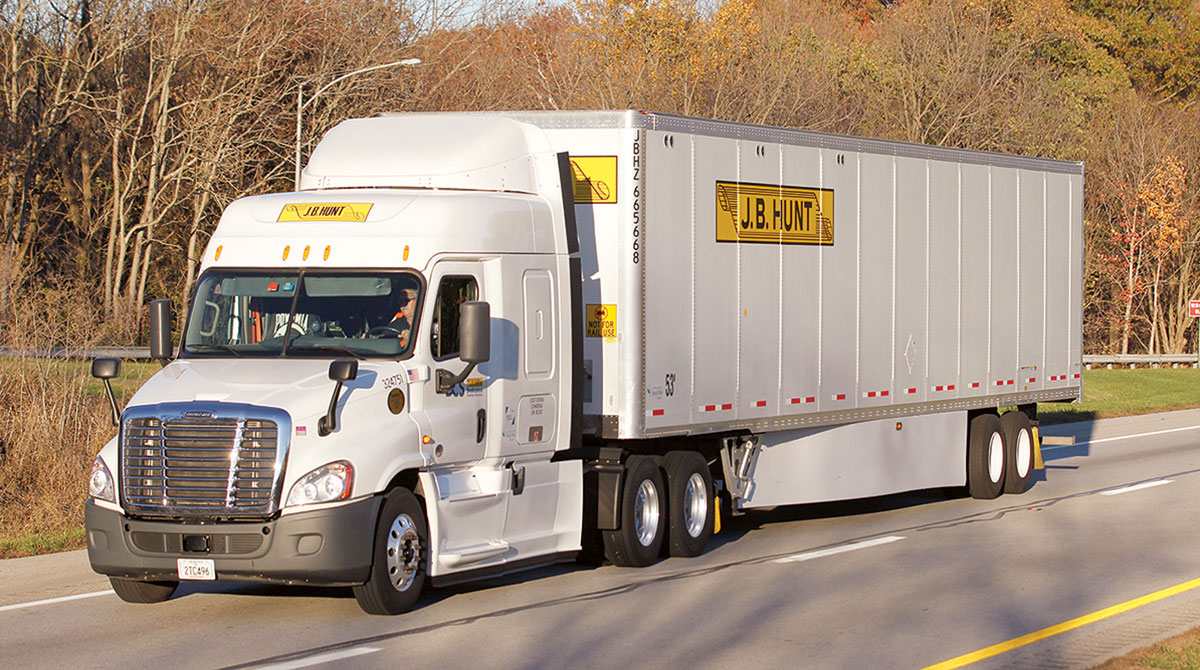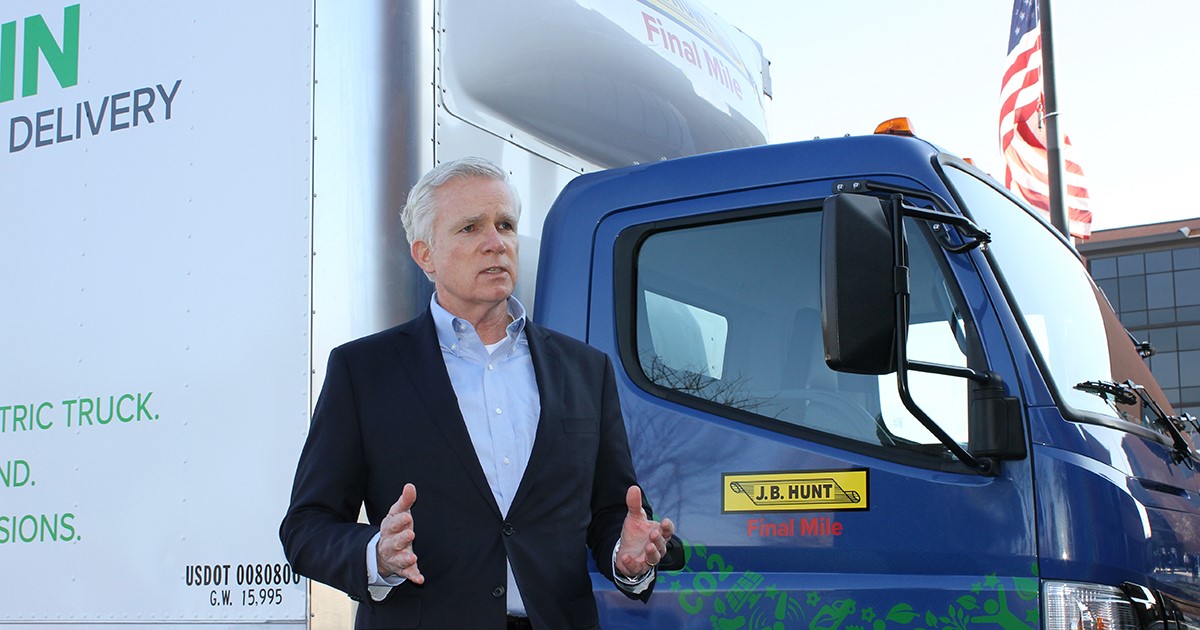
The J.B. Hunt trucking company announced a new goal to reduce its carbon emission intensity 32% by 2034.
Considered one of the largest supply chain solutions providers in North America,, the Lowell, Arkansas-based firm stated it would focus on three key areas to reach its target.
- Incorporating alternative powered equipment into its fleet
- Expanding the use of biogenic fuels
- Improving fuel economy (diesel powered miles-per-gallon “MPG”)
“Our roadmap to achieving this aspirational goal will help J.B. Hunt strive to significantly reduce our carbon emission intensity while holding true to our customer commitment of providing efficient, quality-driven, competitive supply chain solutions for moving their freight,” said Craig Harper, chief sustainability officer and executive vice president at J.B. Hunt.

“Our goal is an ambitious challenge to improve J.B. Hunt’s carbon footprint and to help advance the transportation industry’s progress in developing sustainable solutions that are commercially viable and scalable for widespread adoption.”
He said the company will rely on development and availability of new industry technology including ongoing enhancements to commercial motor vehicles; charging and refueling infrastructure; expanded capacity on the electrical grid; and increased availability of biogenic fuels.
J.B. Hunt operates the largest company-owned intermodal fleet in North America with more than 113,000 53’ containers supported by company-owned chassis and tractors, with plans to expand to as many as 150,000 containers in the next three to five years.
The trucking firm said its goal is an intensity target aligned with the original goal of the Paris Climate Agreement to limit global warming to 2 degrees Celcius.
Over the past decade, J.B. Hunt’s intermodal service has helped avoid an estimated 30 million metric tons of CO2e emissions from over-the-road truck transportation. Similarly, since 2020, the company’s J.B. Hunt 360°® technology platform has provided freight visibility used to find loads that helped company drivers avoid an estimated nearly six million empty miles. While relevant to the emissions-reduction conversation, carbon emissions avoided by intermodal conversion and empty-mile reduction do not contribute to the company achieving its reduction target.





